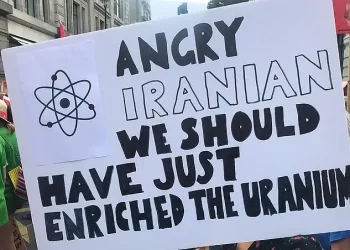A Historic Pledge at Yad Vashem
Standing in the solemn halls of Yad Vashem, U.S. Secretary of State Marco Rubio and Israeli Foreign Minister Gideon Sa’ar reaffirmed their commitment to Holocaust memory and the fight against antisemitism. The Survivor’s Declaration Signing Ceremony marked a moment of reflection and resolve amid rising global concerns.
Commemorating History, Confronting Hate
On [date], at Israel’s national Holocaust memorial in Jerusalem, top U.S. and Israeli officials gathered to sign the Survivor’s Declaration. The event honored Holocaust survivors, underscored the dangers of antisemitism, and highlighted the unwavering U.S.-Israel partnership in safeguarding historical truth.
Highlights from the Ceremony
- Dani Dayon (Yad Vashem Chairman): Spoke on Holocaust memory and resilience.
- Gideon Sa’ar (Israeli FM): Addressed the resurgence of global antisemitism.
- Marco Rubio (U.S. Secretary of State): Reaffirmed America’s commitment to Israel and historical justice.
Echoes from the Past: Leaders’ Messages
Dani Dayon: A Legacy of Strength
Yad Vashem Chairman Dani Dayon opened the ceremony by recalling the words of Holocaust educator Eliahu Gutkovski. He emphasized that Jewish heritage and resilience cannot be erased, likening Israel’s endurance to a phoenix rising from the ashes. He also warned of modern antisemitism, extending beyond extremist regimes to Western academic institutions.
Gideon Sa’ar: A Rising Threat
Israeli Foreign Minister Gideon Sa’ar underscored a troubling reality—antisemitism is resurging globally. He cited growing hostility in international forums and academia, calling out efforts to delegitimize Israel. Sa’ar also reflected on personal family history, remembering his grandfather’s sisters, murdered in Europe.
Marco Rubio: A Call to Action
Secretary Rubio’s speech blended historical reflection with a firm warning against contemporary antisemitism. He condemned those who downplay or distort Holocaust history, emphasizing that hate, if left unchecked, never fades—it grows. He reaffirmed U.S. support for Israel, recognizing it as the ancestral homeland of the Jewish people.
Modern Antisemitism: Growing Concerns
| Current Antisemitism Trends | Examples & Impact |
|---|---|
| University Protests & Bias | Rising anti-Israel sentiment on U.S. campuses |
| Online Hate Speech | Increase in social media-driven conspiracy theories |
| Political & Legal Challenges | Attempts to isolate Israel in international courts |
These factors contribute to a climate where historical truths face distortion, and Jewish communities feel increasingly vulnerable.
Why This Event Matters
The Survivor’s Declaration is more than a ceremonial act—it is a stand against revisionist history. By addressing antisemitism’s modern forms, leaders like Rubio and Sa’ar signal that historical amnesia will not be tolerated.
As antisemitism adapts to new platforms and narratives, preserving Holocaust memory remains vital. The U.S.-Israel alliance continues to serve as a counterforce against global hate.
Final Thoughts
This ceremony serves as a reminder that history is not distant—it is present. Holocaust memory must be preserved, not just for survivors but for future generations. To stay informed on similar global developments, explore further insights into U.S.-Israel relations.
Sources: US Department of State.









